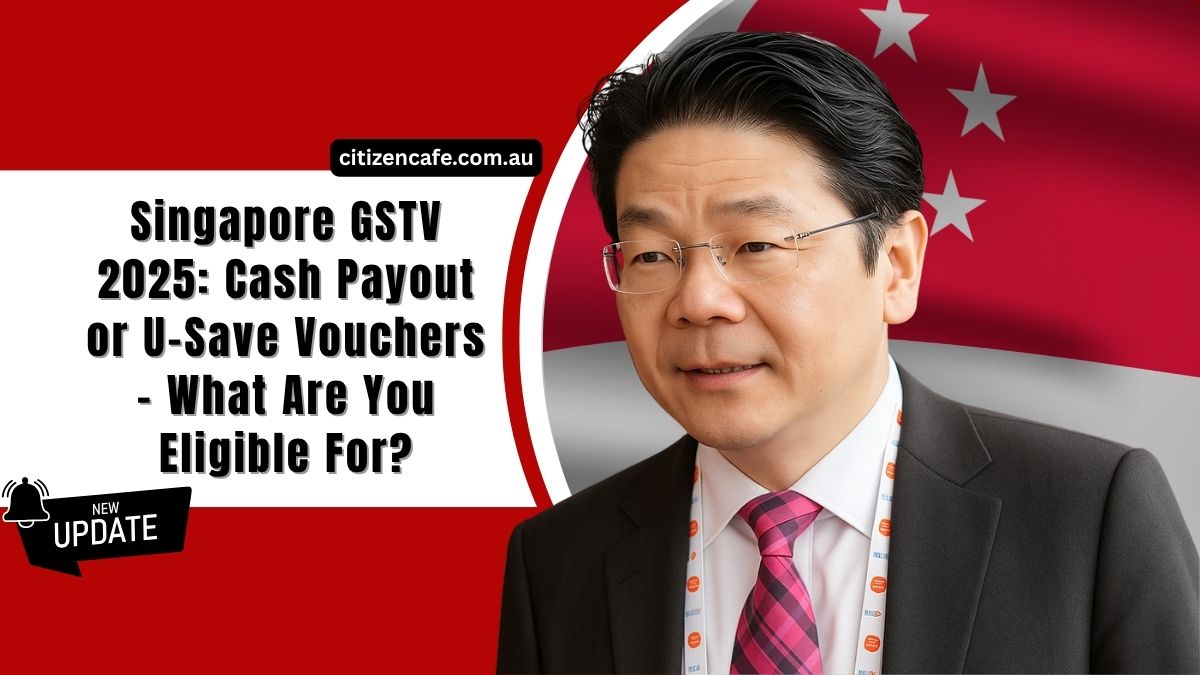As Singapore prepares for the financial initiatives of June 2025, attention is turning to two major support schemes under the government’s broader aid umbrella — GST Voucher (GSTV) Cash payouts and U-Save utility rebates.
These measures are part of a sustained effort to support Singaporeans, especially amid growing cost-of-living pressures.
While both aim to ease financial burdens, they serve distinct purposes. Here’s a complete breakdown of their differences, eligibility criteria, and the value each provides.
Overview of GST Voucher Scheme in 2025
The GST Voucher (GSTV) programme has evolved to include several types of support tailored to different citizens needs. The primary components in 2025 are:
- GSTV – Cash: One-time cash payments to lower- and middle-income citizens for daily expenses.
- GSTV – U-Save: Quarterly rebates on utilities for eligible HDB households.
- GSTV – MediSave: Contributions to CPF MediSave accounts, primarily benefiting seniors.
- GSTV – S&CC Rebate: Assistance in offsetting Service and Conservancy Charges for HDB residents.
Each component is strategically designed to address specific financial challenges in Singaporean households.
Key Differences Between GSTV Cash and U-Save
While both schemes provide monetary relief, their formats and benefits differ greatly. Here’s a side-by-side comparison:
| Feature | GSTV Cash 2025 | U-Save 2025 |
|---|---|---|
| Target Group | Lower- to middle-income individuals | Singaporean HDB households |
| Disbursement Method | Direct bank credit | Rebates on utility bills |
| Frequency | Annually (June) | Quarterly (Jan, Apr, Jul, Oct) |
| Estimated Benefit Amount | $250 to $700 | $55 to $190 per quarter |
| Spending Flexibility | High – unrestricted use | Restricted – utilities only |
This dual approach ensures that individuals and households benefit simultaneously from immediate spending support and essential cost relief.
Eligibility Criteria for 2025 Payouts
Eligibility for both schemes is based on different sets of criteria:
- GSTV – Cash:
- Singapore citizens aged 21 and above.
- Annual income under $34,000.
- Must own no more than one property.
- GSTV – U-Save:
- Applicable to all HDB households with at least one Singapore citizen.
- Rebates are tiered according to flat type, offering more to smaller households.
Notification and payout details will be communicated via SMS or Singpass by the Ministry of Finance starting June 2025.
Which Scheme Is Better for You?
If you’re an individual seeking greater financial flexibility, the GSTV Cash payout is more valuable. However, for households managing regular utility expenses, U-Save provides consistent and reliable support throughout the year.
Importantly, many Singaporeans qualify for both. These schemes are not mutually exclusive and are designed to complement each other under the Singapore 2025 financial assistance framework.
Why These Schemes Are Crucial in 2025
With inflation and energy costs still rising, these benefits are more than just routine government aid — they are a lifeline for many households.
By providing both cash payouts and utility rebates, the Singapore government reinforces its focus on economic resilience, social equity, and long-term sustainability for its citizens.
As June 2025 approaches, understanding the differences between GSTV Cash and U-Save is essential for making the most of Singapore’s government assistance.
Whether you’re looking for flexible financial relief or consistent household support, these programmes are designed to meet your needs in a challenging economic environment.
Stay informed and check your eligibility early to ensure you don’t miss out on these valuable benefits.
FAQs
Can I receive both GSTV Cash and U-Save rebates?
Yes, eligible Singaporeans can receive both benefits as they cater to different needs — individual spending and household utilities.
How will I be notified about my eligibility and payment date?
You’ll receive updates via SMS or Singpass from the Ministry of Finance starting June 2025.
Do I need to apply for the GSTV Cash or U-Save scheme?
No application is needed. Eligibility is automatically assessed, and qualified individuals will receive the payouts or rebates accordingly.

